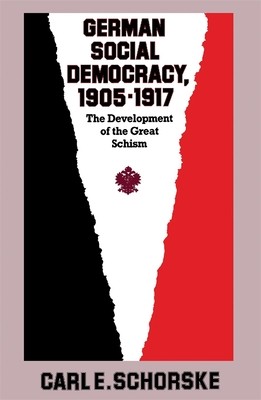
- We will send in 10–14 business days.
- Author: Carl E Schorske
- Publisher: Harvard University Press
- ISBN-10: 0674351258
- ISBN-13: 9780674351257
- Format: 13.7 x 20.9 x 2.7 cm, softcover
- Language: English
- SAVE -10% with code: EXTRA
Reviews
Description
No political parties of present-day Germany are separated by a wider gulf than the two parties of labor, one democratic and reformist, the other totalitarian and socialist-revolutionary. Social Democrats and Communists today face each other as bitter political enemies across the front lines of the Cold War; yet they share a common origin in the Social Democratic Party of Imperial Germany. How did they come to go separate ways? By what process did the old party break apart? How did the prewar party prepare the ground for the dissolution of the labor movement in World War I, and for the subsequent extension of Leninism into Germany? To answer these questions is the purpose of Carl Schorske's study.
EXTRA 10 % discount with code: EXTRA
The promotion ends in 14d.12:16:17
The discount code is valid when purchasing from 10 €. Discounts do not stack.
- Author: Carl E Schorske
- Publisher: Harvard University Press
- ISBN-10: 0674351258
- ISBN-13: 9780674351257
- Format: 13.7 x 20.9 x 2.7 cm, softcover
- Language: English English
No political parties of present-day Germany are separated by a wider gulf than the two parties of labor, one democratic and reformist, the other totalitarian and socialist-revolutionary. Social Democrats and Communists today face each other as bitter political enemies across the front lines of the Cold War; yet they share a common origin in the Social Democratic Party of Imperial Germany. How did they come to go separate ways? By what process did the old party break apart? How did the prewar party prepare the ground for the dissolution of the labor movement in World War I, and for the subsequent extension of Leninism into Germany? To answer these questions is the purpose of Carl Schorske's study.


Reviews